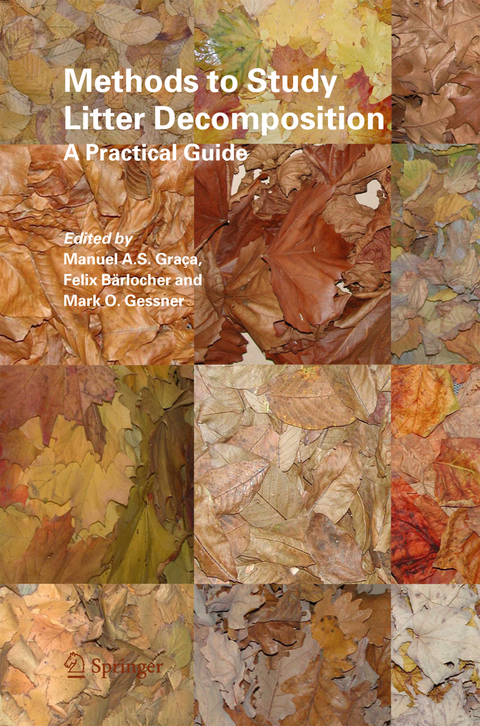
Methods to Study Litter Decomposition
Springer-Verlag New York Inc.
978-1-4020-3348-3 (ISBN)
Decomposition of organic matter is a major ecosystem process involving an array of different organisms, including bacteria, fungi and invertebrates. The main objective of this book is to provide students and laboratory instructors at universities and professional ecologists with a broad range of established methods to study plant litter decomposition. Detailed protocols for direct use in the field or laboratory are presented in an easy to follow step-by-step format. A short introduction to each protocol reviews the ecological significance and principles of the technique and points to key references. Although most methods are described for freshwater ecosystems, many will work equally well in the presented or slightly modified form for studies in marine and terrestrial environments.
Litter Dynamics.- Litter Input.- Leaf Retention.- Manipulation of Stream Retentiveness.- Coarse Benthic Organic Matter.- Leaching.- Leaf Mass Loss Estimated by Litter Bag Technique.- Coarse Particulate Organic Matter Budgets.- Leaf Chemical And Physical Properties.- Determination of Total Nitrogen and Phosphorus in Leaf Litter.- Total Protein.- Free Amino Acids.- Determination of Total Carbohydrates.- Determination of Soluble Carbohydrates.- Total Lipids.- Total Phenolics.- Radial Diffusion Assay for Tannins.- Acid Butanol Assay for Proanthocyanidins (Condensed Tannins).- Proximate Lignin and Cellulose.- Leaf Toughness.- Microbial Decomposers.- Techniques for Handling Ingoldian Fungi.- Maintenance of Aquatic Hyphomycete Cultures.- An Illustrated Key to the Common Temperate Species of Aquatic Hyphomycetes.- Molecular Approaches to Estimate Fungal Diversity. I. Terminal Restriction Fragment Length Polymorphism (T-RFLP).- Molecular Approaches to Estimate Fungal Diversity. II. Denaturing Gradient Gel Electrophoresis (DGGE).- Sporulation by Aquatic Hyphomycetes.- Ergosterol as a Measure of Fungal Biomass.- Acetate Incorporation into Ergosterol to Determine Fungal Growth Rates and Production.- Bacterial Counts and Biomass Determination by Epifluorescence Microscopy.- Secondary Production and Growth of Litter-Associated Bacteria.- Isolation of Cellulose-Degrading Bacteria.- Extraction and Quantification of ATP as a Measure of Microbial Biomass.- Respirometry.- Enzymatic Capabilities.- Extractellular Fungal Hydrolytic Enzyme Activity.- Cellulases.- Viscosimetric Determination of Endocellulase Activity.- Fluorometric Determination of the Activity of ?-Glucosidase and Other Extracellular Hydrolytic Enzymes.- Pectin-Degrading Enzymes: Polygalacturonase and Pectin Lyase.-Lignin-Degrading Enzymes: Phenoloxidase and Peroxidase.- Phenol Oxidation.- Proteinase Activity: Azocoll and Thin-Layer Enzyme Assay.- Detritivorous Consumers.- Maintenance of Shredders in the Laboratory.- Feeding Preferences.- Data Analysis.- Biodiversity.- A Primer for Statistical Analysis.
| Zusatzinfo | X, 329 p. |
|---|---|
| Verlagsort | New York, NY |
| Sprache | englisch |
| Maße | 156 x 232 mm |
| Themenwelt | Naturwissenschaften ► Biologie ► Ökologie / Naturschutz |
| Naturwissenschaften ► Geowissenschaften ► Geologie | |
| ISBN-10 | 1-4020-3348-6 / 1402033486 |
| ISBN-13 | 978-1-4020-3348-3 / 9781402033483 |
| Zustand | Neuware |
| Haben Sie eine Frage zum Produkt? |
aus dem Bereich


